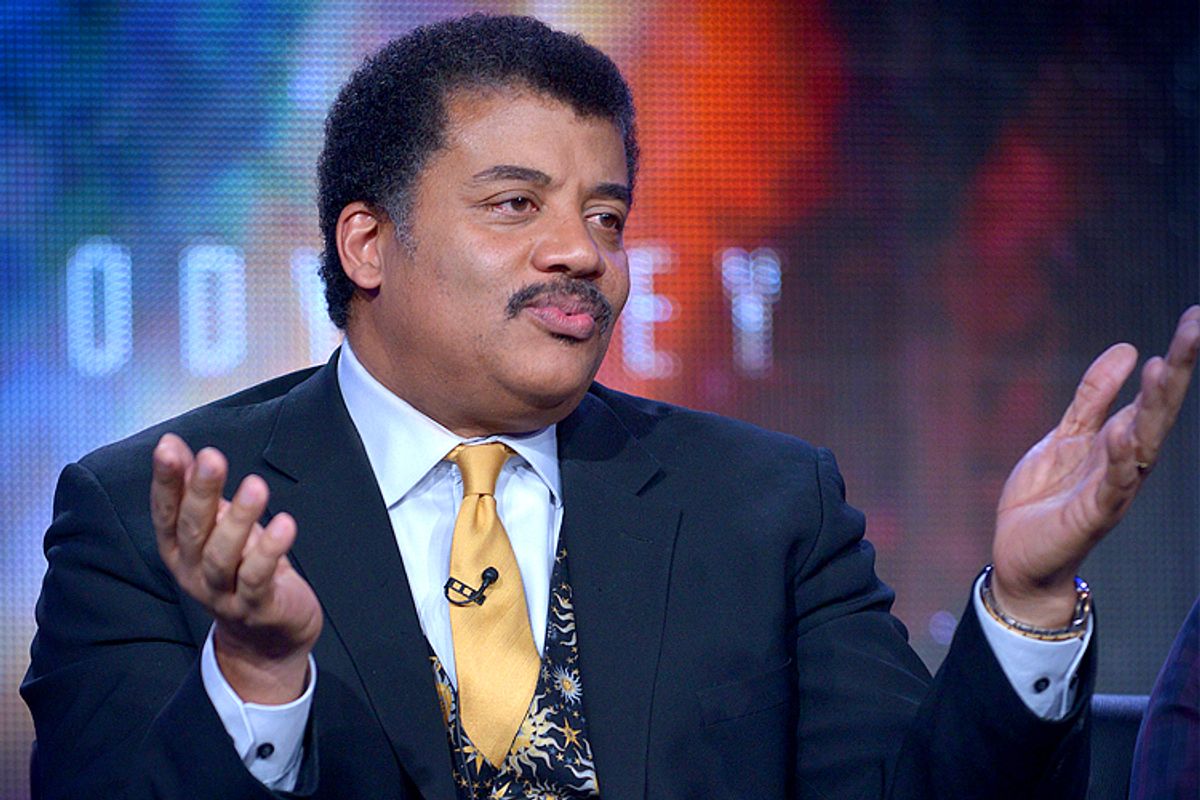Science was delivered a depressing blow today: According to a new Associated Press-GfK poll Americans are skeptical of certain scientific truths -- especially if those truths are further removed from their physical beings.
While only 4 percent doubt that smoking can cause cancer, and only 8 percent are dubious about DNA/genetic code determining traits, many more disbelieve other scientific findings such as climate change, or believe that vaccines are not safe (15 percent).
The poll did not test specific intelligence, rather it rated responders' confidence in statements about medicine or science. The Associated Press reported:
"About 4 in 10 say they are not too confident or outright disbelieve that the earth is warming, mostly a result of man-made heat-trapping gases, that the Earth is 4.5 billion years old or that life on Earth evolved through a process of natural selection, though most were at least somewhat confident in each of those concepts. But a narrow majority — 51 percent — questions the Big Bang theory."
This is a startlingly high percentages given that the Big Bang theory was recently bolstered by new evidence of the existence of gravitational waves (still not secondarily confirmed).
Anthony Leiserowitz, the director of the Yale Project on Climate Change Communication, told the Associated Press that the poll showed what he called "the iron triangle of science, religion and politics."
When science is put in conflict with the others it is often eclipsed by people's religious and political views, explained Alan Leshner who is the chief executive of American Association for the Advancement of Science (the world's largest scientific society).
And the poll seems to reflect that line of thought: Political and religious views had a strong correlation with responders' answers. Democrats, the poll showed, were more likely than Republicans, to feel confident in the Big Bang theory and climate change. Skepticism for climate change, evolution and the Big Bang also increased when people's beliefs in a god-like being increased.
Scientists say that it's not just religion that causes dubious feelings about proven science. The proximity of science to their daily lives also affects how people feel about issues -- the idea that "If you can see it, you can believe it."
There's also more sinister work at hand: calculated campaigns to create doubt and refute science. Duke University professor and 2012 Nobel Prize winner in biochemistry Robert Lefkowitz says that "the force of concerted campaigns to discredit scientific fact" are a harmful foe to climate science and vaccinations.
The poll was taking between March 20 - 24 of 2014 and there is a margin of error of 3.4 percent. "Respondents were first selected randomly using phone or mail survey methods and were later interviewed online," the Associated Press reported. Those who didn't have access to the Internet were provided the ability to access the survey at no cost to themselves, and 1,012 adults took the survey. The Associated Press also said that the survey was designed as a GfK KnowledgePanel, and is designed to represent of the U.S. population.
h/t Associated Press

Shares